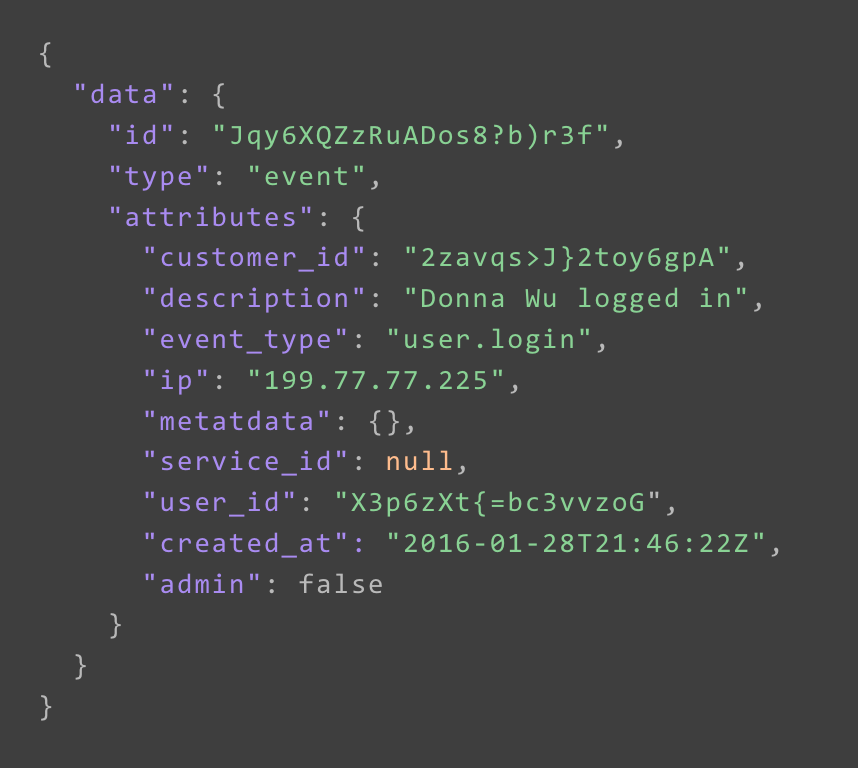Note: this blog was updated 2-1-2017 to reflect a nomenclature change.
At Fastly, we value transparency, and want to give you control over every aspect of your services. Control comes through creating visibility into each configuration change, and that transparency enables improved monitoring and troubleshooting.
With that in mind, we’re happy to announce Event Logs, which will log key events when changes are made to your Fastly service, such as who did it, when it happened, and where (from what IP address) it was made. Event Logs is currently accessible via the API, with plans to add UI support in the future.
Improved monitoring + troubleshooting
Event Logs will help you keep track of changes to your service, giving you the opportunity to determine which changes were made and by whom. This increased visibility into your Fastly services helps you secure your configurations and improve monitoring. It also enables better troubleshooting and debugging when abnormal behavior arises.
Logging key events
Current supported events include:
Version management: version activation, version deactivation, and version lock
User behavior: login, logout, failed login, locked, unlocked, and password updated
Security: 2FA enabled, 2FA disabled, and API key creation
Account management: new invitation, invitation accepted, user updated, user deleted, new company addition, and company settings updated
Billing: pricing plan change and billing contact change
Purge all
Configuration setting (creation, deletion, and update): domain, backend, header, health check, cache setting, request setting, logging endpoint, VCL file, gzip setting, and synthetic response
For a full list of events, please check out our API documentation.
Event Logs leverages the JSON-API standard to enable easier interaction with various frameworks. Here’s an example of an Event Log event structure:

Event Logs also lets you monitor who has access to the Fastly app, ensuring your services are secure. If users start complaining that your site is down, one of the first things you might do is go to your Fastly service and look at the recent activation history. Previously it wasn’t possible to see which user activated the current version without contacting Fastly support. Now with Event Logs, you can immediately and easily see who activated the most recent version and alert that person to begin troubleshooting.
Looking forward
With Event Logs, we’re building something akin to a change control log for your Fastly service. This data will be available in API response standards (JSON-API) that work across various frameworks, making it easier to integrate with Fastly. In the future, there will be mechanisms for users to be proactively informed about key events so that important information can reach the right individuals in a timely manner.
We will continue to add more events, allowing you to track more activity for more granular control. We also plan to add UI support so all users can easily access this information — not just those via the API. This is just the first step, and a foundation for many exciting things to come.
Ready to get started? Head over to our documentation to set up Event Logs — we look forward to hearing what you think!
